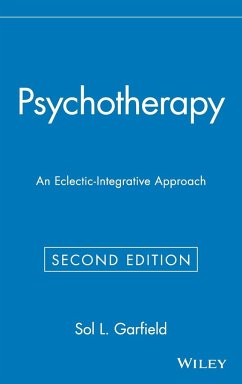DEVELOPMENTAL PSYCHOPATHOLOGY VOLUME I: Theory and Methods, VOLUME II: Risk, Disorder, and Adaptation --Edited by Dante Cicchetti and Donald J. Cohen More than 80 theorists and clinicians share their findings on the complex, ever-changing relationships between pathology and normality. While collectively they approach the subject from a variety of theoretical viewpoints, each author strives to shed new light on some aspect of the mechanisms and processes that contribute to maladaption across the lifecourse. Following a discussion of relevant epidemiology, taxonomy, and assessment issues, Volume I explores the relationship between developmental psychopathology and biological and genetic processes, neuropsychology, and ethology, and the implications of developmental psychopathology for psychometric theory. Readers will appreciate the in-depth examinations of several of the most influential theoretical approaches to the field, including psychoanalytic, systems theory, socio-cognitive, information processing, cross-cultural, and others. Volume II focuses on assessment, classification, and diagnosis of psychopathologies across the life span. It explores numerous relational and ecological risk factors ranging from societal to micro-level processes, and addresses the occurrence of resilient outcomes in the presence of stressors associated with maladaption. Volume I: 1995 (0-471-53243-6) 850 pp., Volume II: 1995 (0-471-53244-4) 850 pp. THE WORKING ALLIANCE: Theory, Research, and Practice --Edited by Adam O. Horvath and Leslie S. Greenberg One of the most important conceptualizations to emerge over the past decade, the "working alliance" refers to the subtle, interactive relationship between client and therapist. This book provides clinicians with a detailed overview of this crucial collaborative relationship and illuminates the ways in which it promotes positive therapeutic change. Key topics covered include: the basic aspects of the alliance concept; methodologies of, and data generated by, each of the major alliance research groups; cognitive, experiential, and family systematic perspectives of the alliance; the moment-to-moment impact of the alliance on the therapeutic process; and more. 1994 (0-471-54640-2) 304 pp. A PERILOUS CALLING: The Hazards of Psychotherapy Practice --Edited by Michael B. Sussman In a series of compelling first-person narratives, nearly 30 practitioners provide intimate, at times painfully frank, accounts of their inner experiences and struggles. They explore such topics as the therapist's personal development and unconscious motivations for becoming a therapist, the strains the therapist's calling can put on a marriage, parenting and psychotherapy, disillusionment and the physical and psychic isolation of clinical work, and the perils of dealing with suicidal patients. They also consider many ethical and legal hazards in the age of the medical "quick-fix." 1995 (0-471-05659-X) 300 pp. Over the course of his long and distinguished career, Sol L. Garfield has received numerous prestigious awards, including the American Psychological Association's Distinguished Contribution Award, the Distinguished Contribution to Knowledge Award, the Distinguished Scientist Award, the Society for Psychotherapy Research Distinguished Research Career Award, and the Council of University Directors of Clinical Psychology 3rd Annual Award for Outstanding Contributions to Clinical Training. He is the author or editor of ten previous books, notably Handbook of Psychotherapy and Behavior Change (coedited with A. E. Bergin), now in its fourth edition, and has contributed nearly 150 journal articles or chapters to edited volumes.
Bitte wählen Sie Ihr Anliegen aus.
Rechnungen
Retourenschein anfordern
Bestellstatus
Storno

